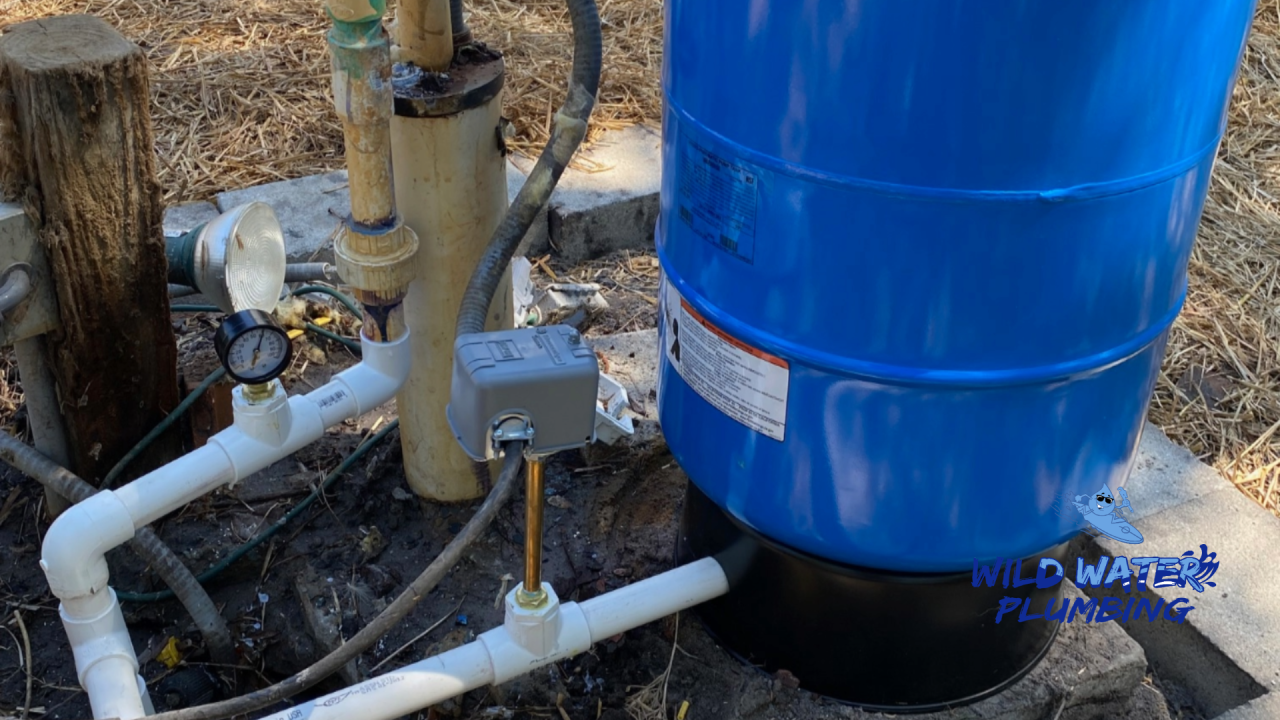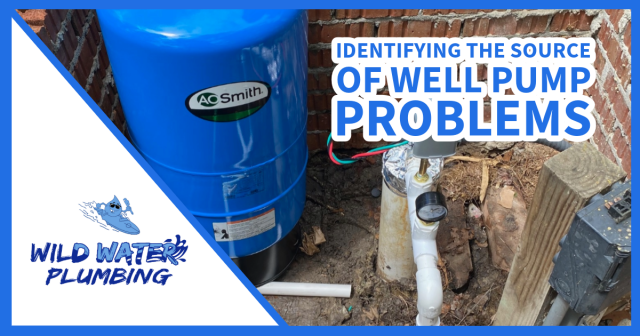Any household that utilizes a well water system requires a dependable, clean water supply.
All of it begins with a well water pump which delivers water from underground to your house.
However, like almost all mechanical products, well water pumps may fail, disrupting your drinking water supply and possibly causing much expense and inconvenience.
Understanding the challenges and possible causes of a failing well water pump will help with timely maintenance and avoiding unforeseen breakdowns.
Here are the top reasons for well water pump failures for Greater Jacksonville, NC
1. Power supply issues
Among the most common issues that cause well water pump failure is the power supply issue.
The pump needs a sufficient and steady power source.
Voltage surges, voltage drops, and complete power outages could harm the pump motor and electric parts.
Also, wiring issues, including loose connections or corrosion, can impair the pump’s performance, causing total failure or intermittent operation.
2. Clogged or Damaged Intake Screen
The Intake Screen filters debris and contaminants from the well water before it enters the pump.
With time, sediment, sand, and other particles can obstruct the intake screen and stop water from streaming through it.
A clogged screen makes the pump work harder, increasing wear and tear on the pump parts and perhaps causing overheating and motor burnout.
The intake screen should be routinely inspected and cleaned to preserve peak pump performance.
3. Low water levels
The pump could run dry when the well water level drops below the pump intake.
Lack of water flow causes overheating and substantial damage to the pump motor and sealings.
Low water levels could be brought on by rain, over-pumping or seasonal variations; thus, well water levels must be monitored and water conservation methods applied if needed.
4. Thermal overload
Well water pumps have thermal Overload protectors to prevent motor overheating.
However, frequent cycling or constantly running the pump for an extended period will result in thermal overload, and the pump will shut down to avoid damage.
High demand, a defective pressure switch, or blocked water flow due to leaks or clogs might cause thermal overload.
Proper system balance and addressing root causes can prevent thermal overload occurrences.
5. Wiring & Electrical Component Failures
The electrical components of a well water pump system, such as the pressure switch, capacitor, and wiring, are easily worn and damaged.
Moisture, extreme temperatures, and electric surges could cause these parts to stop working and hinder pump operation.
Flawed wiring can cause intermittent power supply, and a bad pressure switch can cause improper pump cycling, both of which cause pump failure.
6. Corrosion & Rust
Exposure to dampness and groundwater could cause corrosion and rust on the pump’s inner and outer parts.
Corrosion weakens metal parts and leads to leakages, decreased effectiveness, and, ultimately, failure of vital parts like the impeller and motor housing.
The pump’s longevity may be extended using corrosion-resistant materials and safety coatings.
7. Improper Maintenance and Installation
A well water pump should be set up correctly and maintained regularly.
Poor installation procedures, such as incorrect pipe sizing, inadequate sealing, or improper alignment, can cause operational problems and premature pump failure.
Similarly, failure to examine electrical connections, lubricate moving parts, and check for leakages can accelerate wear and shorten the pump’s life.
8. Aging
Pump components, such as water pumps, ultimately wear down.
Parts like seals, bearings, and the impeller wear down with usage, raising the likelihood of failure.
Regular checks and replacement of worn parts are needed to extend the pump’s life and prevent unforeseen breakdowns.
9. Pump cycling and Short cycling
Cycling is where the Pump turns on and off to maintain the water pressure at the desired level.
However, much cycling (short-cycling) could strain the pump motor and decrease efficiency.
Short cycling could be caused by an incorrectly set pressure switch, plumbing leaking or a faulty pressure tank.
Taking proper care of these issues earlier can bring down pressure on the pump and increase durability.
10. Sump pit issues
For wells equipped with a sump pit, issues within the pit can affect the pump’s performance.
Debris accumulation, improper pit sizing, or inadequate drainage can lead to pump blockages, uneven water flow, and increased operational stress.
Regular cleaning and maintenance of the sump pit ensure that the pump operates in an optimal environment, reducing the risk of failure.
Preventive Measures & Maintenance Tips to Avoid Water Pump Failures:
- Regular Inspections: Regularly check the pump system (intake screen, electric connections, pressure switch) to recognize problems early.
- Maintain Proper Water Levels: Monitor well water levels and conserve water to keep the pump at its design capacity.
- Clean and Replace Components: Clear the intake screen, replace worn seals, and frequently service electrical components for optimum pump performance.
- Guard Against Corrosion: Use corrosion-resistant materials and coat wet pump parts with protective coatings.
- Professional Maintenance: Schedule yearly inspections and maintenance with a plumber or pump expert.
- Install Surge Protectors: Surge protectors may protect the pump’s electrical components from power surges and voltage variations.
- Ensure Proper Installation: Verify that the pump system is installed correctly by a professional following manufacturer specifications and industry requirements.
When to Call a Plumber
While many pump issues can be fixed with simple troubleshooting and maintenance tasks, some others require the services of a plumber or pump technician.
If you continue to experience pump failures, unusual sounds, unusual water pressure, or colossal wear and tear symptoms, contact our plumbers.
They can diagnose your well water pump system, suggest repairs or replacements, and keep it operating smoothly and safely.
A well water pump is a crucial component of any well-based water system, consistently providing water for your house.
Understanding pump failures and possible causes helps homeowners stop them from taking place.
Addressing power supply problems and avoiding clogs, as well as maintaining and installing your well water pump correctly, can prolong the pump’s lifetime and save you cash in repairs.
By becoming informed and aware, your well water pump will provide clean, reliable water for decades.



